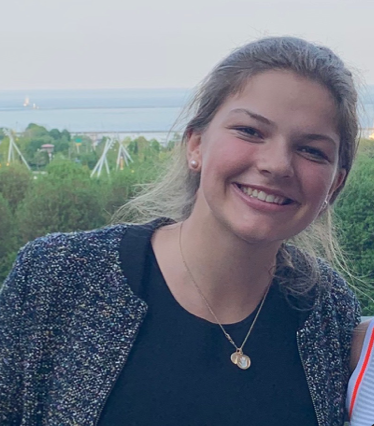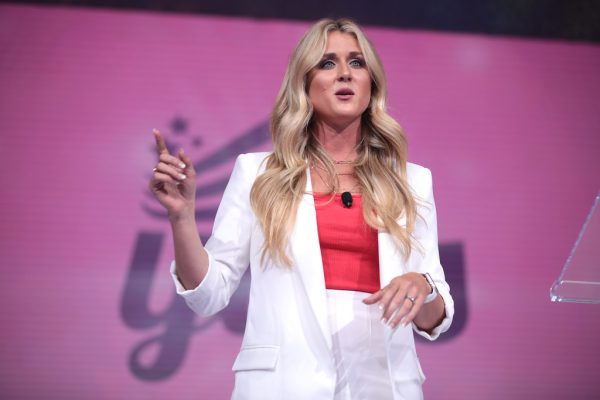The Importance of Doing Your Part in and Beyond the Pandemic
May 9, 2020
With all of the hysteria the world is facing right now, we have been put in a corner and forced to think about our actions. Like a time out, we’re living in a space where questions are asked faster than they can be answered, and going outside poses a risk to the health of those you care most about. Everyone’s actions matter and can determine the survival of thousands. But don’t our actions always matter?
At the start of this pandemic, global news sources emphasized that while death tolls were staggeringly high for the elderly, COVID-19 posed a much slimmer risk to middle and lower age groups if no preexisting conditions existed. Although many, regardless of age, followed suggested guidelines to self-quarantine, others disobeyed them.
Junior Maya Gray created a simile for this scenario, saying, “It’s like a test: if you’re told you have to take the test, you’ll stress and freak out and study harder…If you know you won’t be taking the test, you won’t do anything. For the elderly, they know they have the highest risk..”
Senior Jessica Flohr is an example of a teen who defends the importance of self-isolation, saying, “I am practicing social distancing not just for my well-being, but for the well-being of my loved ones which I think is something everyone should consider when going against recommendations of health officials.” People like Jess show just how quickly a call to action can entirely change our lifestyles.
One question that has risen to the spotlight during the pandemic is how the call to action for COVID-19 compares to that for climate change. Questions about who is most at risk play the most significant role in these wars. In the crisis of COVID-19, the elderly continue to be affected, and younger generations follow behind, with secondary rates of death, but still being affected. With climate change, although a gruesome topic, many of the elderly will not live to see the significant effects on our planet, younger generations will.
Jess said, “With climate change, I think that the younger generations have definitely taken a much more proactive stance on the issue, especially with the school walkouts (Fridays for Future) that have been occurring globally. That being said, I think that older generations need to consider the world they want to leave behind for their loved ones. Just as the youth must consider how their actions impact the elderly, the elderly should consider how their actions impact the youth.” Junior Sujan Garapati said, “Each group is in it for their own self-interest. Young people who are more affected by climate change are doing more to fight against it, while the opposite can be said about COVID-19.” With these imbalances of affectedness, what comes down to choose where resources are placed?
Urgency. This pandemic is affecting everyone in a myriad of ways. Sophomore Keely noted that, “The virus has changed my awareness and how I take caution” while Jess said, “I personally have asthma, which puts me in a higher risk category for developing COVID-19, and having a more severe reaction if I were to develop it. Additionally, as a senior, it has been a challenging time. It has been hard to wrap my head around the cancellation of my last Project Week and spring break, plus the fact that I might not get to have a senior prom or normal graduation.” and Sujan said, “COVID-19 has affected a lot of my life. My 85-year-old grandmother lives in Chicago near Latin School, and due to the outbreak, we have made sure she is safe and doing well. Additionally, my parents are doctors, so their life is busy at the hospitals.”
When asked why this problem is so stressful, four out of four people came back to the word urgency. Sujan responded saying, “We need to be quick.” Maya Gray noted, “Urgency is key. One wrong move could completely change the world’s future and our ability to recover”, and Jess said, “I think that COVID-19 is the immediate danger as it is currently taking more lives, and harming the global economy, and therefore must be addressed first. Now, don’t get me wrong, I am not saying we should ignore climate change, just that we need to focus our attention on the COVID pandemic at this time”.
So what can we do now? Mr. Cronister said, “I’m disappointed that our President doesn’t believe that climate change is real. Since 99.9 scientists say climate change is real and strongly influenced by human activity, we should believe them and act on their recommendations (similarly to how the health scientists and doctors are currently leading us to act during COVID-19)…Obviously, speed is essential to the COVID-19 challenge. That said, people in the U.S. need to do a better job with the serious steps needed (i.e., social distancing, staying healthy, etc.). Some people obviously don’t see the immediate need for stopping climate change either.”
Maya shared her home’s tips saying, “It is imperative to be still conscious of how much plastic you are using and not to waste food. Especially in times like these, we can actively practice eating all of the food in our fridge and using less plastic. We’ve actually gotten rid of plastic wrap in our house and use beeswax instead – it’s reusable, environmentally friendly, and allows you to wrap food up and save it for later.”
Moving forward, Jess points out that, “I do think that the sharing of information between nations during this pandemic has been incredibly important and that this is something that should continue beyond the time of COVID-19. This virus is not the only thing that the world needs to come together for. Climate change is a global issue that we need to combat by working together.” and Maya reminds us that “The best thing we can do is to listen to what WHO and other major organizations are telling us to do as well as to keep reading. This is the front page of every newspaper, so while cautioning your reading is important, getting different perspectives is definitely key during this crazy time.”
On a happier note, though, Mr. Cronister mentioned that “It’s ironic that the carbon footprint of the world has decreased over the past few weeks with people driving less, fossil-fuel factories being closed, and people not flying much. Perhaps we will continue to use (a bit) less even when the virus crisis ends!”


























































